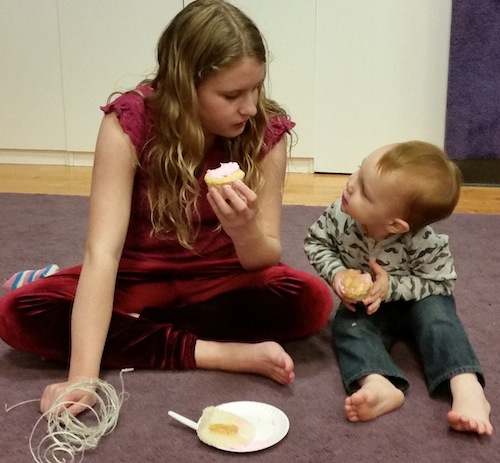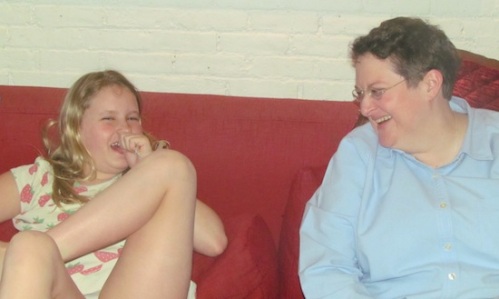My friend Bridget wasn’t feeling great. She felt off-balance and couldn’t walk and it was making it difficult for her to talk. And then she told me the carpeting made her dizzy. I hadn’t noticed the carpeting, but when she said this to me, I realized the pattern of the carpet was like an op-art nightmare, in sharp contrasting hues, the repetitive pattern was eye-catching and I suddenly wondered how I could have blocked it out. But, you see, I had. The carpet wasn’t a problem until she mentioned it and then I couldn’t not see it. In addition, there was a plexiglass barrier that gave the sensation of being in an infinity pool, without any of the relaxation involved. It was as though the carpeting spilled over the edge and disappeared into an abyss. It was disconcerting and even frightening.
I held out the crook of my arm, the way a blind man in New York City taught me to do, years ago. A stranger, he’d asked if I could help him cross a busy intersection. At the time I was carrying my son in a Kelty pack on my back and had my then infant daughter in a snuggly. When I offered my hand to the man, he told me it was easier for him if I crooked my arm and he then held that, it was more stable, but also gave him the ability to control his own movement more. Bridget took my arm and we were able to make our way to the elevators without mishap.
It was like pain, you don’t realize how awful it is until it’s gone, and then you’re filled with indescribable relief that makes you hyper aware and surprised by just how bad the pain had been. Afterwards you wonder how you managed it. Realizations are like that. Once you have them they’re impossible to undo or un-think or un-feel. This is how it is with autism too.
A few months ago I was waiting for the cashier to ring up my groceries. Suddenly a load bang sounded. Without meaning to I jumped and turned toward the sound. It was another cashier smacking a paper bag open. She was smiling and the cashier next to her did the same thing. Other cashiers began to laugh and followed by banging their bags open. I was furious. The noise felt intolerable. I wondered what I might say to make them stop. I went through various scenarios in my mind, from yelling obscenities, to self-righteous indignation, to calling the manager. And then they stopped. The deafening sound that felt like a physical assault ended and I realized I’d been holding my breath.
As I walked home with my groceries I thought about how angry I’d gotten and how my body froze and then I thought about how awful it would be if I was assaulted, bombarded with intolerable sounds all the time or lighting that had a similar effect and suddenly, very suddenly, I understood something I had not understood before. I understood what people meant when they suggested that sensory issues can affect one’s actions, or as they say when referring to autism – how sensory issues can result in “behaviors”.
Had the banging noise continued in the grocery store I would have said something, and it would not have been kind or thoughtful or restrained. I would have had “behaviors” as a direct result of that awful noise. Had someone told me to calm down I would have been even more furious. My actions would most certainly have been viewed as over reacting or needlessly extreme.
Had I not been present when my friend Bridget told me how awful she felt and that she needed to sit down for a second and then told me why, I would not have noticed the awful carpeting nor would I have understood how the pattern of a carpet could disrupt one’s equilibrium so much so that one might lose the ability to speak. These are the things I am learning. These are the things that make the difference between understanding, and maybe even being able to do something helpful and not.



















